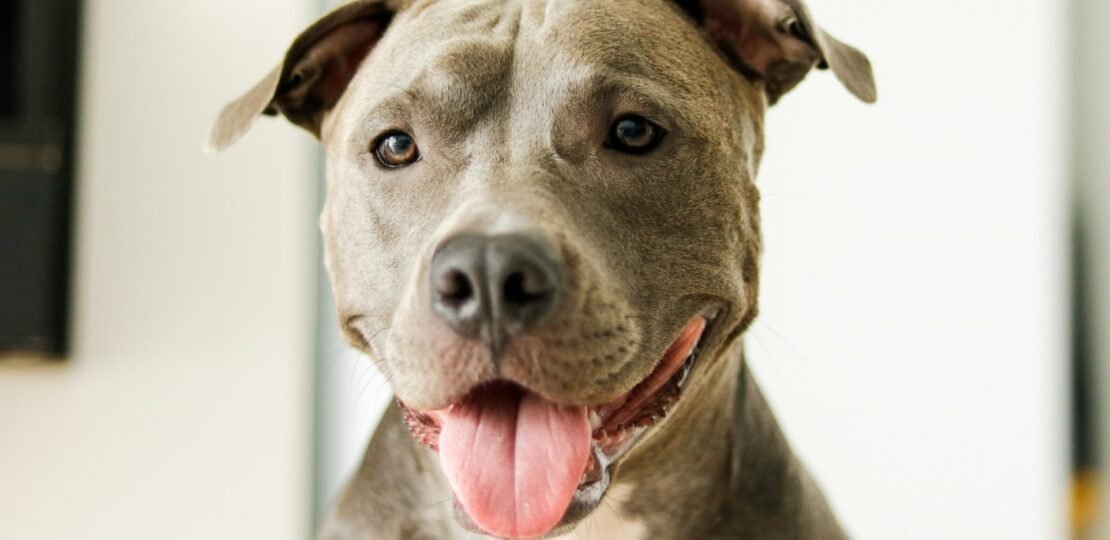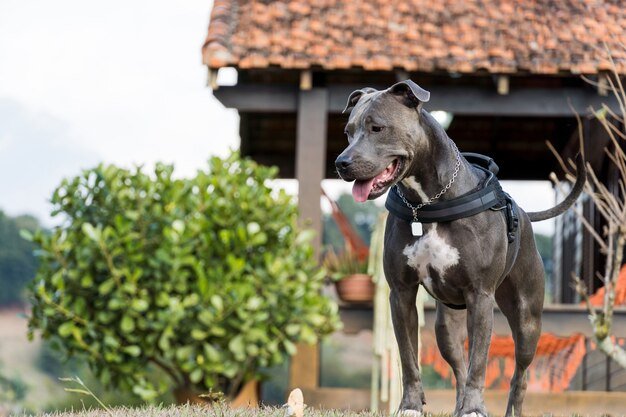Do Pitbulls Bark a Lot? A Look at Barking Frequency and Training Tips
January 6, 2024 | by myfirstpittie.com

When it comes to pitbulls, one question that often arises is, “Do pitbulls bark a lot?” In this blog post, we will explore the barking frequency of pitbulls compared to other breeds and provide some positive reinforcement training tips to help reduce excessive barking if desired.
Barking Frequency of Pitbulls
Pitbulls, like any other dog breed, have their own unique personalities and tendencies. While some pitbulls may bark more than others, it is important to note that excessive barking is not necessarily a breed-specific trait. Barking frequency can vary depending on individual temperament, training, and environmental factors.
It is worth mentioning that pitbulls are known to be vocal dogs. They may bark to communicate their needs, alert their owners to potential dangers, or express their excitement. However, this does not mean that all pitbulls bark excessively. With proper training and socialization, pitbulls can learn to bark appropriately and only when necessary.
Comparing Barking Frequency
To gain a better understanding of the barking frequency of pitbulls, let’s compare them to other breeds. While it is difficult to make generalizations about all pitbulls or any specific breed, some breeds are known to be more vocal than others.
For example, breeds like Beagles, Chihuahuas, and Shetland Sheepdogs are known to be quite vocal. On the other hand, breeds like Basenjis and Greyhounds tend to be less vocal. Pitbulls, in comparison, fall somewhere in the middle. They are not typically considered excessive barkers, but individual pitbulls may have different barking tendencies.
Positive Reinforcement Training Tips
If you find that your pitbull is barking excessively and you would like to reduce it, positive reinforcement training can be a helpful approach. Here are some tips to consider:
1. Identify the Triggers
Observe your pitbull’s behavior and identify what triggers their barking. Is it strangers at the door, other animals, or loud noises? Understanding the triggers can help you address the root cause of the excessive barking.
2. Use Desensitization Techniques
Once you have identified the triggers, gradually expose your pitbull to those situations in a controlled and positive manner. This process, known as desensitization, can help them become more comfortable and less reactive, ultimately reducing their barking.
3. Reward Quiet Behavior
When your pitbull is quiet and not barking, reward them with treats, praise, or a favorite toy. Positive reinforcement for desired behavior can help them understand that being calm and quiet is rewarded.
4. Provide Mental and Physical Stimulation
Boredom can often lead to excessive barking. Make sure your pitbull receives enough mental and physical stimulation through activities like puzzle toys, interactive play, and regular exercise. A tired and mentally stimulated dog is less likely to bark excessively.
5. Seek Professional Help if Needed
If your pitbull’s excessive barking persists despite your best efforts, it may be beneficial to seek guidance from a professional dog trainer or behaviorist. They can provide personalized advice and training techniques to address the specific needs of your pitbull.
In conclusion, while pitbulls may have a tendency to be vocal, not all pitbulls bark excessively. With proper training, socialization, and understanding of their triggers, you can help your pitbull become a well-behaved and appropriately vocal companion. Remember, positive reinforcement training is key to shaping their behavior and reducing excessive barking if desired.
RELATED POSTS
View all



